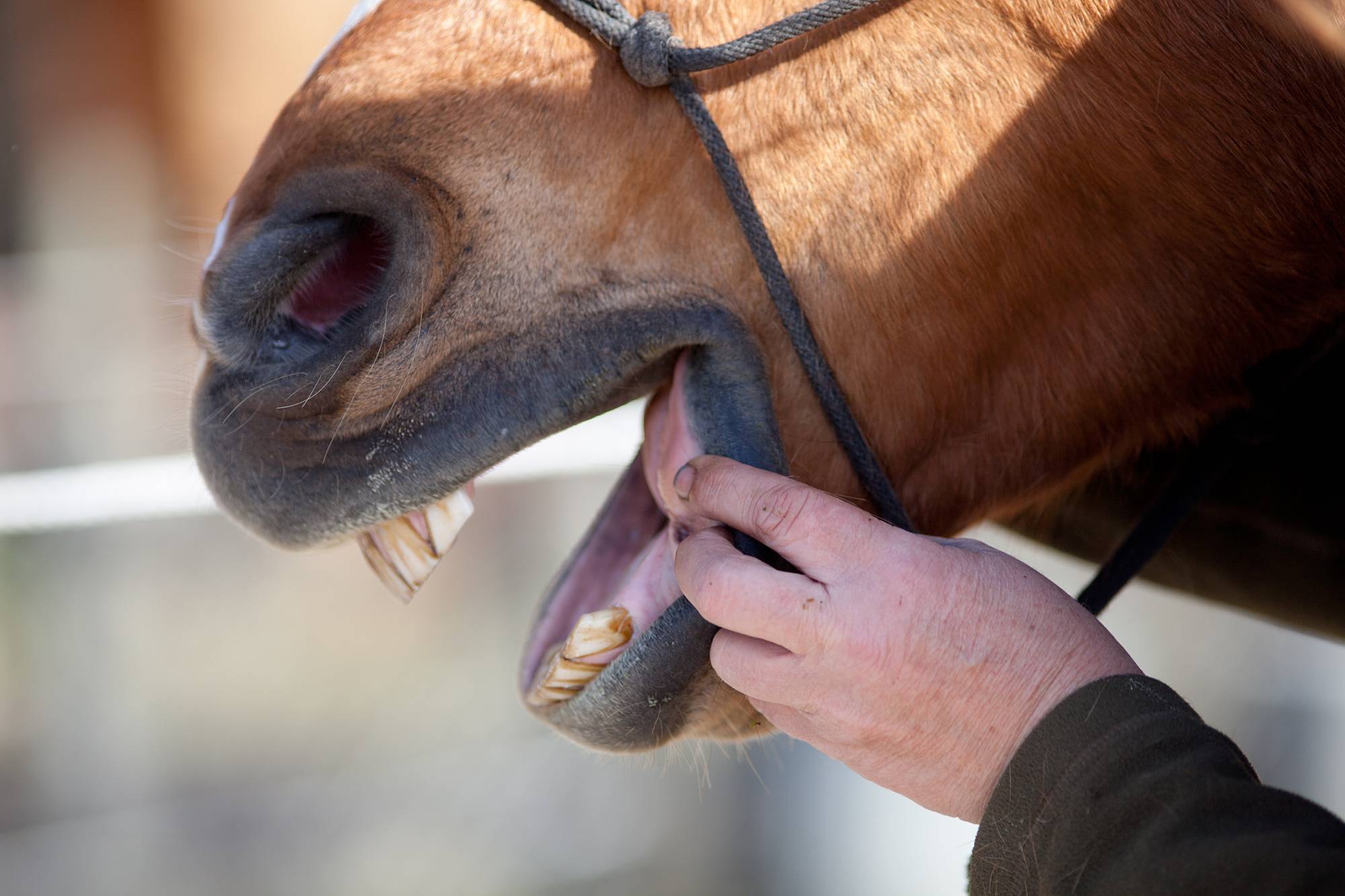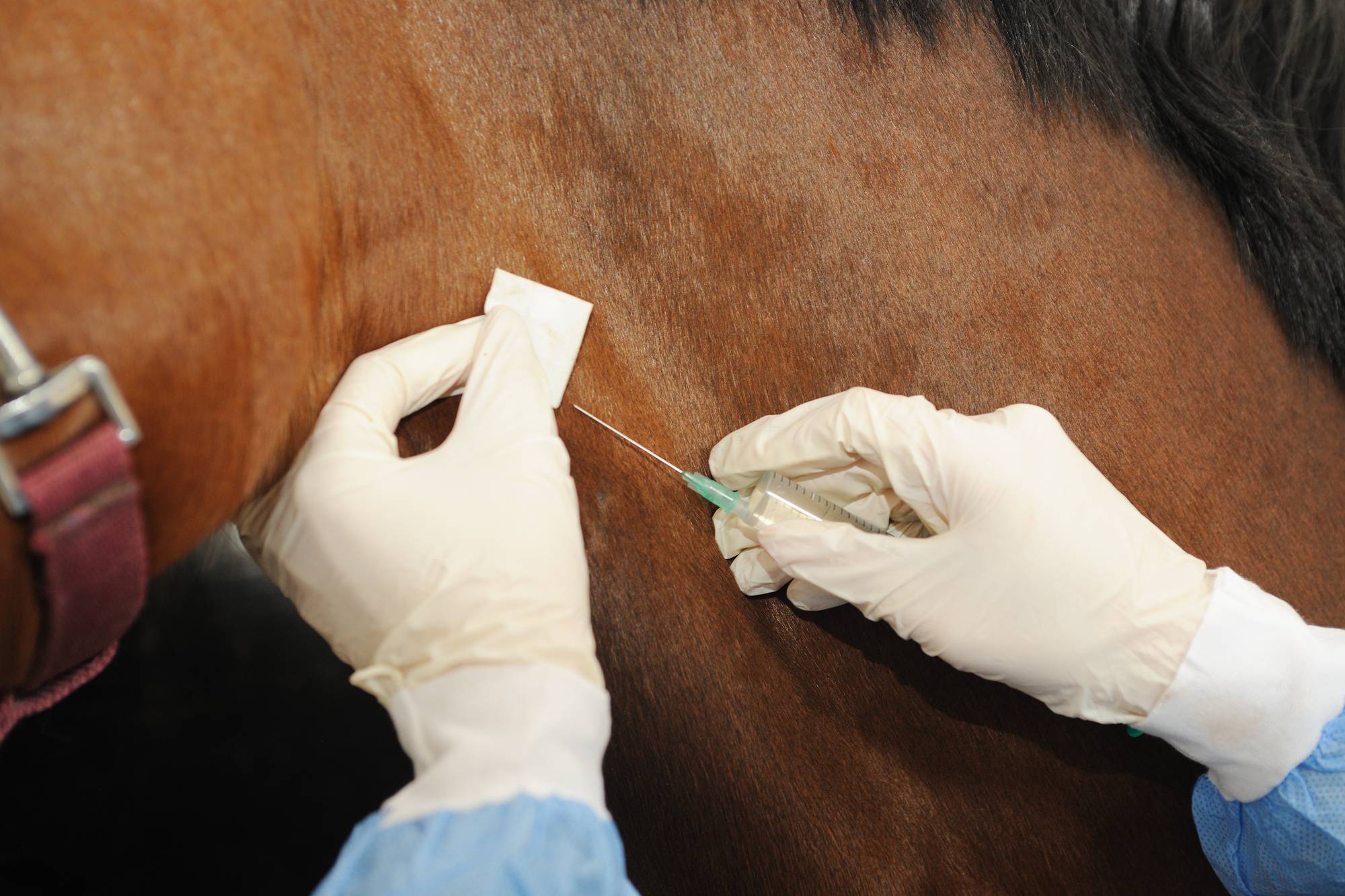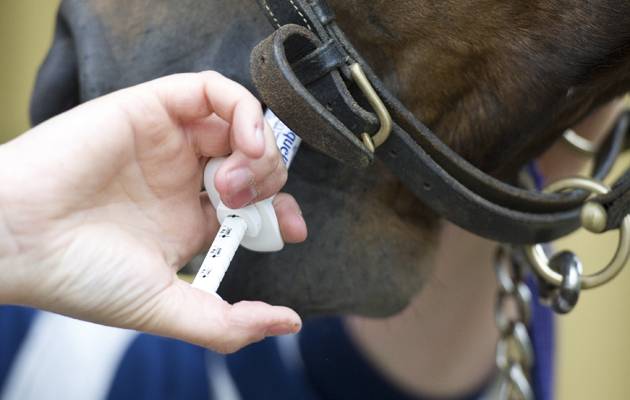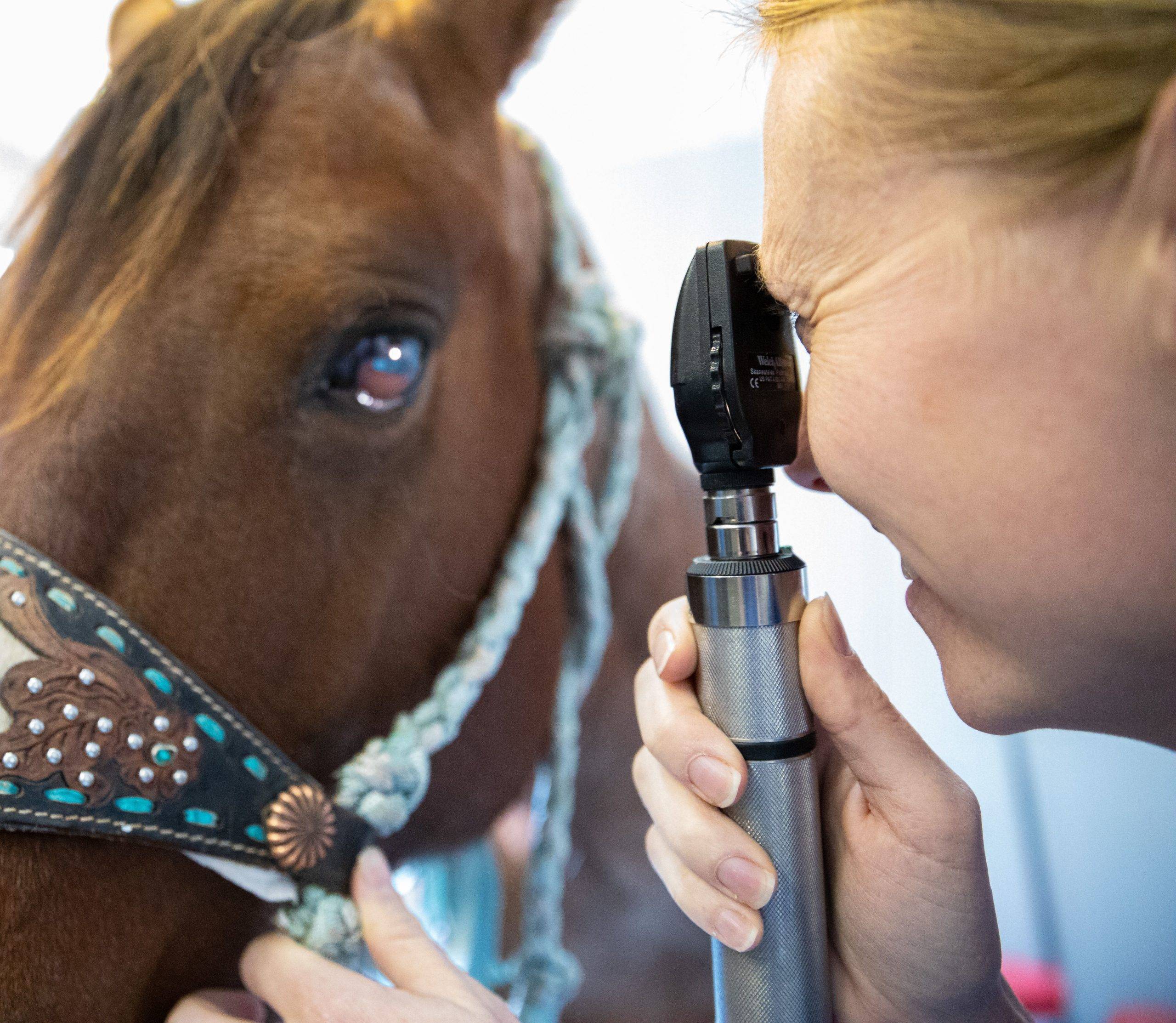GENERAL CARE & treatment
A complete Preventative Health Care Program is essential to the health of your horse. The practice of preventative medicine is far more desirable than emergency care. EVS offers a full array of health care services designed to maintain your horse’s health. Through regular examinations we can help prevent the development of serious problems by recognizing and treating those problems at early stages. We will help you learn how to maintain a happy and healthy horse and can advise you on all aspects of horse health.
SOME OF OUR SERVICES INCLUDE:

DENISTRY (Read More)
EVS provides a full range of equine dentistry services from routine floating and extractions.
Your veterinarian needs to provide regular dental examinations in the interest of maintaining the good health of your horse. We recommend that horses begin to have their teeth checked for uneven wear as yearlings and that they are checked every six months for the rest of their lives. This routine is beneficial in improving food utilization and therefore general health. Tooth problems in horses are common because their teeth never stop growing. The majority of horses have poor mouths as a result of irregular wear.
The equine dentistry services we provide and dental problems we address include:
- Floating
- Wolf Teeth Extractions
- Cap & Plaque Removal
- Oral or Surgical Extraction of Infected or Decayed Cheek Teeth
- Dentigerous Cyst Identification and Extraction
- Identification and Treatment of TMJ Issues

VACCINATIONS (READ MORE)
Vaccination is one of the best and most cost effective ways to prevent many infectious diseases in horses. Having a veterinarian administer the vaccination helps ensure proper handling and storage of the vaccine to maximize effectiveness.
EVS recommends all horses have a coggins blood test (EIA) annually.
CLICK HERE FOR www.globalvetlink.com
EVS recommends ALL horses be vaccinated for:
- West Nile virus
- Eastern & Western Encephalitis & Tetanus (EWT)
- Rabies
Horses who are stabled or pastured with other horses and those that travel will most likely need some or all risk based vaccines.
Risk-based vaccines:
- Influenza / Rhinopneumonitis) (Flu/Rhino)
- Strangles
- Botulism
- Leptospirosis
RECOMMENDED VACCINATION SCHEDULE
New Born Foal: Tetanus antitoxin
Foal 4.5 months: West Nile / EWT / Rabies / Flu-Rhino
Foal 6 months: West Nile/ EWT / Flu-Rhino
Adult horses: (Jan-May)- West Nile / EWT / Rabies / Flu-Rhino / Strangles
Adult horses: (Sept-Dec)- Flu-Rhino / Strangles
The schedule above is a suggested vaccination schedule and is based on generally accepted veterinary practices. Infectious disease control programs in conjunction with vaccinations are important in Maximizing the health, productivity and performance of your horse.
- Leptospirosis vaccination should be considered on farms where horses have been diagnosed with Equine Recurrent Uvitis.
- Botulism vaccine should be used for any horse eating off a round bale, especially in crowded pastures or when hay is fed in same area. Broodmares should be vaccinated against Botulism to prevent infections in foals. Schedule for Botulism is 3 doses 2 weeks apart the first year and then yearly thereafter.
Since vaccines simulate an immune response, it is not uncommon for some horses to experience mild side effects shortly after vaccination.
These side effects may include: low-grade fever, fatigue or decreased energy or tenderness at the injection site.
Side effects should dissipate within 24 hours, if they persist or are severe please contact us immediately.

DEWORMING (READ MORE)
Traditionally, deworming of horses has been performed on a rotating schedule, using a different dewormer every 8 weeks. For a long time, this program worked well, and we were successful in almost eliminating the large strongyle from our equine population. However, in the last 5-10 years we have seen a major increase in resistance of worms to our most commonly used dewormers. This is leaving some of our equine patients vulnerable and owners frustrated.
So, what can we do to help prevent resistance in your herd? The best way to monitor your herds worm burden and resistance in your herd is with afecal egg count (FEC). With a FEC we can evaluate how many eggs per gram (epg) your horse is shedding and categorize them into one of three categories: Low shedder (<200 epg), Moderate shedders (200-500 epg) and High shedders (>500 epg). We then base your horses deworming schedule on their category. Every horse will shed a different amount of eggs.
Even if a horse is in a pasture with a high shedder, doesn’t mean that they will be a high shedder as well. The difference in the parasite burden between horses is caused by the ability of each horses immune system to fight against the parasite, not just exposure. Some horses can keep their own parasite burden low, while others cannot. By running a FEC we can classify your horse into one of the three categories and help reduce the amount of different dewormers the parasites are exposed to, thus reducing resistance.
So how do you know if the parasites on your farm are resistant to a certain dewormer or not? By performing a FEC before deworming and then one 10-14 days after deworming, we can calculate your herds Fecal Egg Count Reduction. Counts that don’t decrease by more than 90% are resistant. Doing a Fecal Egg Count Reduction test should be performed every 2-3 years.
Preforming a fecal egg count on your herd can help reduce the number of times you have to deworm per year, saving you money and helping insure that we can continue to keep our horses as healthy as possible. Please contact us for instructions on how to submit a fecal sample for your horse today.
Deworming Schedule Based on FEC
- Low Shedders (<200 epg)
- Spring (March) – Ivermectin or Moxidectin
- Fall (October) – Ivermectin w/ Praziquantel or Moxidectin w/ Praziquantel (Quest +)
- Moderate Shedders (200-500 epg)
- Spring (March) – Ivermectin or Moxidectin or double dose of Fenbendazole for 5 days (Panacur Power Pac)
- Late Summer (July) – Pyrantel Pamonate or Fenbendazole
- Early Winter (November) – Ivermectin w/ Praziquantel or Moxidectin w/ Praziquantel (Quest +)
- High Shedders (>500 epg)
- Spring (March) – Ivermectin or Moxidectin or double dose of Fenbendazole for 5 days (Panacur Power Pac)
- Summer (June) – Pyrantel Pamonate or Fenbendazole
- Fall (After Frost) – Ivermectin w/ Praziquantel or Moxidectin w/ Praziquantel (Quest +)
- Winter (December) – Pyrantel Pamoate or Fenbendazole

LAB SERVICES (READ MORE)
- SAA Stable Lab
- Complete Blood Count / Chemistry- Abaxis
- Coggins -Global Vet Link
VITAL SIGNS
There will be variations in individual temperature, pulse and respiration values. Take several baseline measurements when the horse is healthy, rested, and relaxed. Write them down and keep them within easy reach, perhaps with your first aid kit, so you have them to compare to in case of an emergency.
Normal ranges for adult horses:
- Pulse rate: 30-42 beats per minute.
- Respiratory rate: 12-20 breaths per minute.
- Rectal temperature: 99.5′ to 101.5′ F. If the horse’s temperature exceeds 102.5′ F., contact your veterinarian immediately.
- Capillary refill time (time it takes for color to return to gum tissue adjacent to teeth after pressing and releasing with your thumb): 2 seconds.
Equine Veterinary Services
4025 Coleman Cut Road
Paducah, KY 42001
(270) 554-6601
office@equinevetservice.com
Emergency After Hours:
(270) 441-2086
